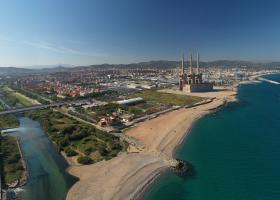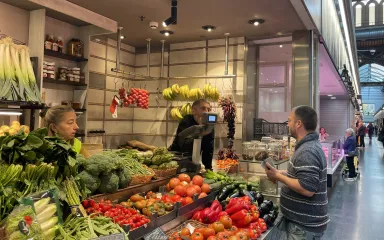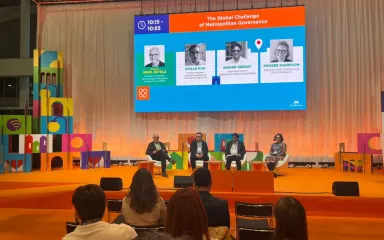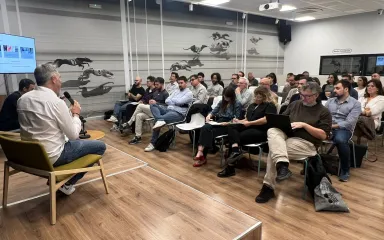PEMB projects
Strategic projects
The Joint Office for Sustainable Food (OCAS) is a joint initiative of the Generalitat de Catalunya (Department of Agriculture, Livestock, Fisheries and Food), the Barcelona City Council, the PEMB and Prodeca. The main objective of OCAS is to promote collaboration and synergies between food strategies, and to promote a more sustainable, healthy and resilient food system through urban-rural connections.
GreenInCities is an EU-funded H2020 project that aims to transform urban spaces through nature-based solutions and technological applications. Integrating human and non-human needs, the project combines data-driven innovation with neuroscience to co-create a sustainable future by taking a proactive approach to climate change adaptation and mitigation in disadvantaged areas.
Cities are spaces that generate and reproduce inequalities, including gender inequalities. With the project known as the Metropolis from a gendered perspective, the PEMB wants to keep highlighting how this gender inequality operates in order to collaboratively rethink about the metropolis and how to inhabit it in a more equitable way. To achieve this, the PEMB applies the perspective of gender in a cross-cutting manner throughout in all its areas of action, both internally within the association and the office, as well as in external initiatives to promote reflection and transformation.
SUP4SUD seeks to bring together municipalities, regions, innovation agencies and universities to explore how strategic urban planning can effectively incorporate the principles of sustainable development and contribute directly to the policies of the European Green Deal, the New European Bauhaus and the Urban Agenda for the EU. In this project, the PEMB seeks to contribute to introducing the metropolitan dimension into the Spanish Urban Agenda.
In a context of constant and unexpected change, urban and peri-urban (UPU) food systems are affected by deep inequalities that make them vulnerable and fragile to crises. The CULTIVATE project aims to help cities build more resilient and sustainable food sharing models. The project does so by identifying key factors that can act as drivers of change or barriers, and by challenging current theories and practices that hinder a fairer, more efficient exchange of food.
The Shared agenda on inclusive housing decarbonization in the Barcelona metropolitan region is part of the RIS3CAT 2030 strategy of the Generalitat de Catalunya, and its objective is to promote an energy efficient and socially equitable decarbonization of the housing stock in the metropolitan region of Barcelona. How does it aim to do this? By bringing about transformative changes in the actors involved in energy renovation processes in order to reach the most vulnerable groups and prevent potential negative impacts of decarbonization, such as higher housing prices or social exclusion.
The Barcelona Metropolitan Region Food Charter (CARM) is a strategic coordination instrument for the development of local and metropolitan food policies. The charter features the participation of more than 100 organisations from the quintuple helix: companies, social entities, public administrations, research centres and the media. Since 2023, CARM has become the focal point for the ‘Healthy Eating’ mission of the Metropolitan Commitment 2030.
The Barcelona Office of the Metropolitan Urban Master Plan (PDUM) was created with the aim of tailoring the PDUM to the city of Barcelona, in order to address the need for information and data to work together on planning, as well as to guarantee cross-cutting work and coherence in the drafting of the PDUM and the Metropolitan Commitment 2030.








